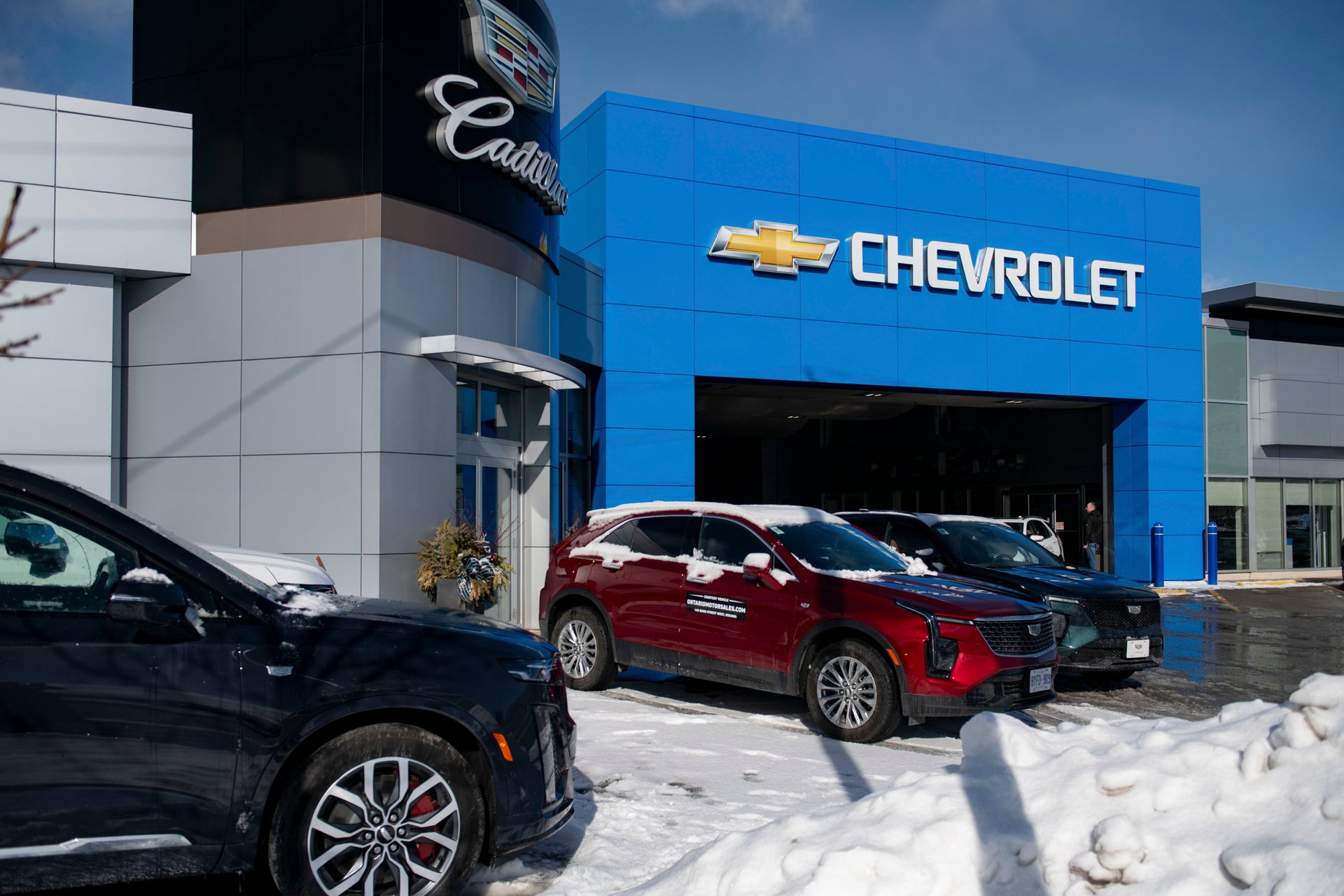Tesla, GM, and other car makers are winning their customers' loyalty
That loyalty will be important as the auto industry grapples with geopolitical uncertainty

General Motors (GM) and Tesla (TSLA) have some of the most loyal customers, according to new research.
Suggested Reading
S&P Global Mobility (SPGI), an automotive data and research firm, on Wednesday released its 29th U.S. Automotive Loyalty Awards. It defines brand loyalty as when a household that owns a new vehicle purchases another vehicle of the same make, model, or manufacturer.
Related Content
GM won the award for “overall loyalty” to a manufacturer for the tenth consecutive year and 21st overall, the research firm said. The Chevrolet Equinox was the small utility vehicle that had customers coming back, winning the prize for that segment.
In a statement, the Detroit automaker said its broad range of vehicles and “exceptional” customer service played a big role in winning over customers. It also cited its Super Cruise driver assistance system and infotainment services.
“It’s a direct result of having vehicle teams that consistently deliver beautiful, high-quality products and a dealer network that provides exceptional customer service,” GM President Mark Reuss said.
Tesla won three awards — overall loyalty to make, ethnic market loyalty to make, and highest conquest percentage — for the third year in a row. Ford Motor Co. (F) had secured the top loyalty spot for 12 years before Tesla dethroned it in 2022. Tesla claims its Model Y was the best-selling car of 2024.
That comes in contrast to the company’s recent performance, as sales dropped in Europe and California. CEO Elon Musk’s political activities have cost Tesla about $15 billion in brand value, Brand Finance told CNBC last month.
Ford, Land Rover, Subaru (FUJHY), Honda Motor Co. (HMC), Porsche (VWAGY), Nissan (NSANY), and Lexus (TM) all picked up at least one award. The Lincoln Corsair won for overall loyalty to a model; Lincoln’s Nautilus had won in 2023. Brand loyalty overall hit 51.6% last year, growing 0.6% compared to 2023.
“While brand loyalty is still below pre-pandemic levels, we are starting to see a consistent trend of customers going back to the brands they are familiar with,” Joe LaFeir, head of automotive insights at S&P Global Mobility, said in a statement.
LaFeir noted that loyalty will be important as the auto industry deals with an uncertain geopolitical climate, marked by President Donald Trump’s tariffs. Retention, LaFeir said, will be an “even greater indicator of brand health.”
The president’s 25% tariffs on Mexico and Canada are set to go into effect next week, while an official announcement of 25% duties on imports from European Union member nations is expected “very soon,” Trump said on Wednesday. In his remarks, he noted that cars will be impacted.
According to S&P Global Mobility research, almost all original equipment manufacturers will be impacted by the tariffs. The increased duties on Canada and Mexico, combined with tariffs on foreign steel and aluminum, are set to hike vehicle prices in the U.S.
The Michigan-based Anderson Economic Group estimates that a 25% tariff would add between $4,000 and $10,000 per car to vehicles assembled in North America, according to a recent presentation. A full-size SUV’s price would be increased by $9,000, while a battery-electric vehicle’s price would grow by $12,200. Aluminum and steel duties add another $250 to $800 per gas-powered vehicle and up to $2,500 on EVs, the group said, assuming that there are no tariff exclusions.
